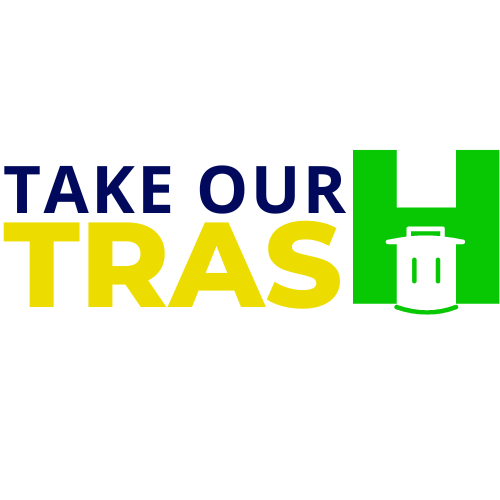The holiday season is a time for joy, family gatherings, and festive traditions. However, it’s also a time when waste generation can spike. From wrapping paper and decorations to leftover food and disposable party items, the holidays often leave a significant environmental footprint. But with a little creativity and planning, you can make your celebrations more eco-friendly and reduce holiday waste.
Here are some practical tips for managing holiday waste and keeping your festivities green while still having a good time.
1. Choose Sustainable Wrapping Paper
Wrapping paper is one of the most significant contributors to holiday waste. Every year, tons of wrapping paper are thrown away after a single use. The good news is, there are plenty of eco-friendly alternatives.
- What to Do: Opt for reusable gift bags, fabric wraps (like Furoshiki cloth), or brown paper that can be decorated with stamps or twine.
- Tip: Avoid shiny or glittery wrapping paper as it is not recyclable and often ends up in landfills.
2. Reduce Disposable Decorations
Holiday decorations, while beautiful, can generate a lot of waste, especially when they are used once and then discarded. This season, try to reduce your reliance on disposable decorations.
- What to Do: Invest in reusable or biodegradable decorations such as fabric garlands, wooden ornaments, or natural elements like pinecones, holly, and fresh greenery.
- Tip: If you do use disposable decorations, ensure they are made from recyclable materials and are disposed of properly.
3. Minimize Single-Use Tableware
When hosting holiday meals, disposable tableware can add up quickly. Plastic plates, cups, and utensils not only contribute to waste but are also often not recyclable.
- What to Do: Choose reusable dishes, cups, and utensils for your holiday gatherings. If disposables are necessary, opt for compostable or recyclable options.
- Tip: Use cloth napkins instead of paper ones to cut down on waste.
4. Donate Excess Food
The holiday season often results in an abundance of food—much of which ends up in the trash. To minimize food waste, plan your meals carefully and donate any surplus to food banks or shelters.
- What to Do: Make a realistic estimate of how much food you will need. Leftovers can be shared with friends or donated to those in need.
- Tip: If you end up with extra food, composting is a great way to recycle organic waste.
5. Recycle and Compost
Recycling and composting are two key ways to manage waste during the holidays. Many holiday-related items like cardboard boxes, paper, and food scraps can be recycled or composted.
- What to Do: Set up clear recycling bins and compost bins at your home. Educate your guests on which items belong in each bin to ensure proper disposal.
- Tip: Many local recycling programs accept wrapping paper, cardboard boxes, and glass jars, so check with your local waste management service.
6. Go Digital with Holiday Cards
Sending holiday cards is a lovely tradition, but traditional cards often end up in the trash after a few weeks. Consider making the switch to digital cards or e-cards to reduce paper waste.
- What to Do: Use email or social media to send holiday greetings. If you prefer physical cards, choose those made from recycled materials or those that are fully recyclable.
- Tip: Some online services allow you to send custom digital cards that look as festive and personal as traditional cards.
7. Buy Eco-Friendly Gifts
Gift-giving is a holiday highlight, but the wrapping and packaging of gifts can contribute to unnecessary waste. Try to make mindful purchasing decisions when shopping for presents.
- What to Do: Choose gifts that are reusable, sustainable, or made from eco-friendly materials. Look for products with minimal packaging or ones that come in recyclable packaging.
- Tip: Consider giving experiences, such as tickets to a show, a cooking class, or a donation to a charity, rather than physical gifts.
8. Use Energy-Efficient Holiday Lighting
Holiday lights are a staple in many homes, but they can consume a lot of energy, especially if left on all night. Opt for energy-efficient lighting to minimize your carbon footprint.
- What to Do: Switch to LED lights, which use less energy and last longer than traditional incandescent bulbs. Set a timer to turn the lights off when they’re not needed.
- Tip: Avoid leaving lights on for long periods of time, especially when you’re not home, to conserve energy.
9. Rent Party Supplies
If you’re hosting a large holiday gathering, renting items like tablecloths, dinnerware, and serving trays can help reduce waste. These items are often washed and reused, which is more sustainable than buying disposable ones.
- What to Do: Look into local rental services that offer eco-friendly party supplies for holiday events.
- Tip: Renting not only helps reduce waste but also saves money on items you only use once a year.
10. Dispose of Electronics Responsibly
After the holidays, many people end up with new electronics like smartphones, tablets, and gadgets. Disposing of old electronics can be tricky, as they can contain harmful materials that should not be thrown in the trash.
- What to Do: Find a nearby e-waste recycling center where you can safely dispose of old electronics.
- Tip: Donate working electronics to charities, schools, or community centers instead of throwing them away.
Conclusion: Celebrate Responsibly and Sustainably
The holiday season is about making memories with loved ones, and with a little effort, you can enjoy a greener celebration that reduces waste and minimizes your environmental impact. By incorporating eco-friendly tips like choosing sustainable decorations, reducing food waste, and opting for energy-efficient options, you can make your holidays both festive and responsible. A little planning and mindfulness can go a long way in making this holiday season a greener one for you, your family, and the planet.

